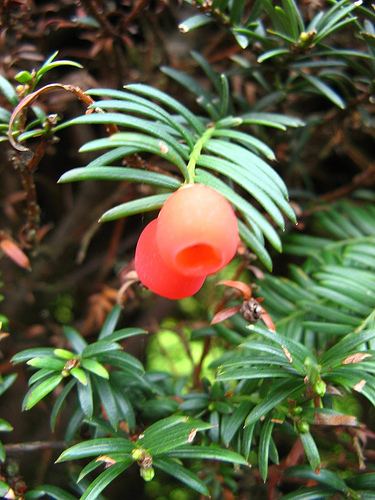You guys are just too smart – I was hoping to trap someone into guessing a Vaccinium species. But no, you all knew this was a Taxus spp. (yew):

Because Taxus is a gymnosperm, this reproductive structure is actually a cone. It’s botanically incorrect to call it a fruit of any sort, as the term "fruit" refers specifically to angiosperms. Taxus cones are modified for seed dispersal to include an edible, fleshy aril (very good, @GardenHoe!), whose taste and color are attractive to birds. The seed (which is toxic, like all vegetative parts of the plant – you’re right, Jimbo!) passes through the gut undigested.
The toxin in Taxus is the alkaloid taxine. Like many alkaloids, it’s a potent neurotoxin. Other alkaloids you’re more familiar with include caffeine, nicotine, and codeine.